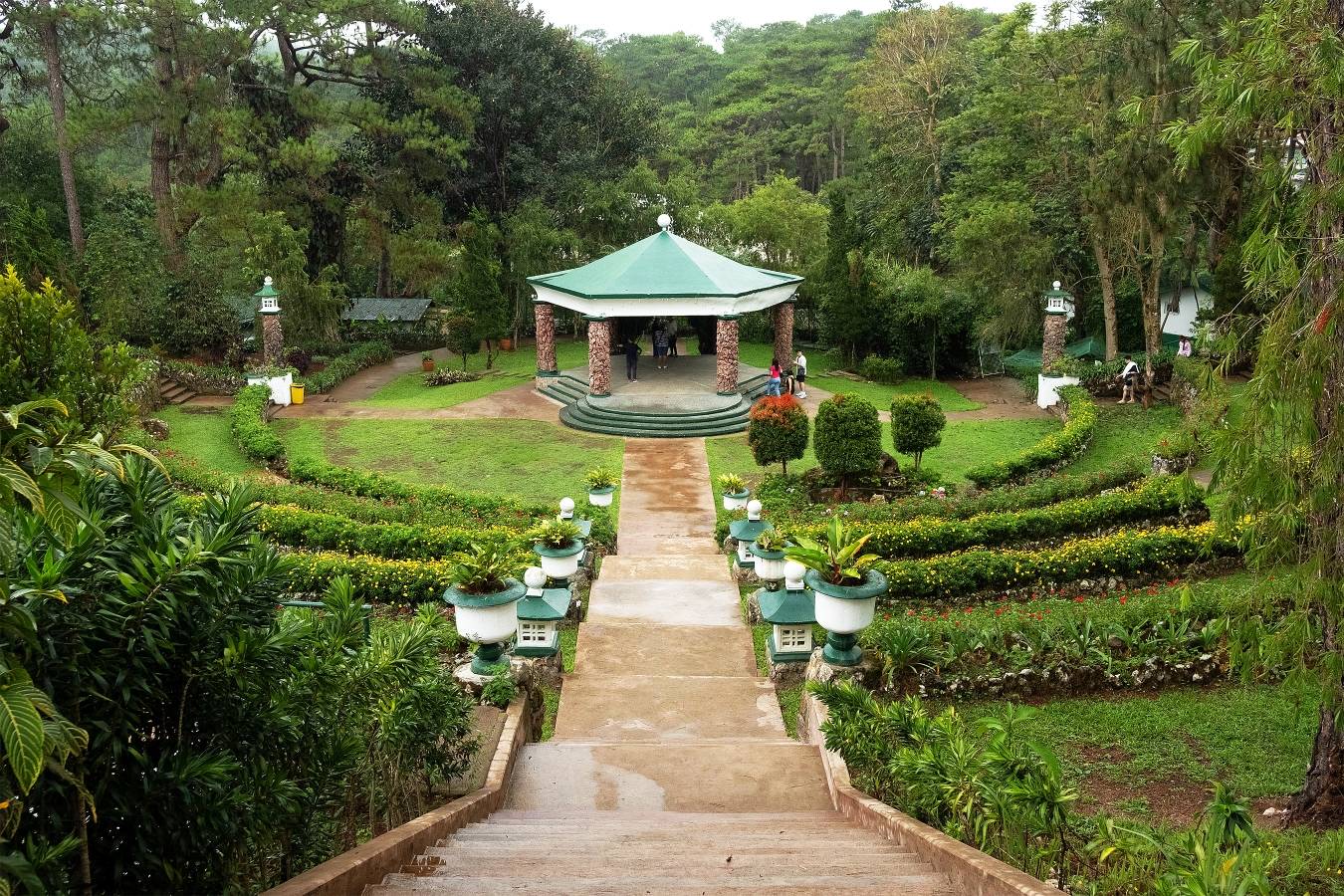SC upholds Baguio’s right to tax Camp John Hay traders

TAXABLE Camp John Hay is as historic as Baguio City, which was designed and built by the American colonial government at the beginning of the 20th century. A favorite travel and wedding spot, such as its amphitheater shown here in a July photo, it is also a top earner and must pay business fees to the Baguio City government, the Supreme Court ruled. —Neil Clark Ongchangco
BAGUIO CITY, Philippines — The Supreme Court has recently declared that its recognition of the summer capital’s authority to collect business fees and other taxes from enterprises operating inside Camp John Hay has become final and executory, City Legal Officer Althea Alberto informed the city council on Monday.
According to Alberto, the Supreme Court Second Division, in a Feb. 22, 2023, decision, has ruled that Baguio could regulate businesses and collect taxes inside the 625-hectare former American rest and recreation base land, particularly at the 248-hectare built-up areas that were converted into a special economic zone administered by the Bases Conversion and Development Authority (BCDA).
READ: Baguio execs in a quandary over SC ruling on John Hay
The local government received a copy of the high court’s July 8 decision that dismissed a motion for reconsideration filed by government-owned John Hay Management Corp. (JHMC), a BCDA subsidiary, regarding last year’s ruling, paving the way for the city to inventory and audit John Hay businesses, and collect outstanding fees, Alberto announced at the council’s session.
Following a recent meeting with BCDA president Joshua Bingcang, John Hay’s custodians have started negotiating with Baguio Mayor Benjamin Magalong for a set of guidelines that would harmonize the oversight powers of the city’s business licensing office and a JHMC “one-stop shop” for business under a draft memorandum of agreement that has not yet been submitted, Alberto said.
Article continues after this advertisementBaguio is also collecting its shares from John Hay’s gross revenues, as well as unremitted shares from rent BCDA was to collect from Camp John Hay Development Corp. (CJHDevco), the consortium owned by businessman Robert John Sobrepeña that won the 1996 lease to convert John Hay into a tourism estate.
Article continues after this advertisementData from the City Treasurer’s Office showed an estimated balance of P168 million in unremitted rental shares, which is in danger of being forfeited because of a 2015 arbitral ruling that voided CJHDevco’s lease due to many violations. The Supreme Court, sitting en banc in April this year, reinstated the arbitral decision questioned by Sobrepeña’s group.
Inventory
Vice Mayor Faustino Olowan, a lawyer, advised Alberto to “let the court help us collect” by petitioning the Supreme Court to immediately grant Baguio access to John Hay’s books of account before signing any deal with BCDA.
Alberto said the city government needed to enter and identify all businesses operating inside John Hay.
In a 2019 list of locators, JHMC identified 120 businesses operating inside its economic zone, but it said only 85 have contracts with BCDA and JHMC.
Attempts made to enforce Baguio business rules inside John Hay were rebuffed by JHMC as early as 2009. JHMC went to court in 2010 after former Mayor Mauricio Domogan issued notices of violation and stop orders to some of John Hay’s locators for not securing their regulatory clearances.
According to the 2023 decision penned by Senior Associate Justice Marvic Leonen, the laws and executive directives creating the John Hay Special Economic Zone do not explicitly empower BCDA, nor its estate manager, JHMC, “to issue permits or regulate businesses” inside the John Hay property.
“Neither can they invoke the powers granted only to the Philippine Economic Zone Authority. Without an express grant by law, respondent’s (the Baguio government’s) police power prevails. Thus, locators within the John Hay Special Economic Zone not duly registered with the Philippine Economic Zone Authority are liable to pay business permit fees to [the city],” the Supreme Court said.
19 conditions
The high court added: “Only business enterprises within the John Hay Special Economic Zone that are registered with the Philippine Economic Zone Authority shall enjoy the tax and duty exemption privileges [provided by law]. All unregistered business enterprises within the John Hay Special Economic Zone shall pay all relevant national and local taxes, duties, and fees as may be imposable under national and local laws.”
The 2023 decision also cited BCDA’s commitment to fulfill 19 conditions set by the Baguio government in 1994 before it endorsed the master development plan for John Hay’s commercialization.
Aside from honoring Baguio’s authority to regulate businesses, two of these conditions obligated BCDA to release Baguio’s 3-percent equitable share from the gross income of operations within the John Hay Special Economic Zone (condition 9), and 25 percent of John Hay lease rentals or 30 percent of its net income from operations within the special economic zone, whichever is higher, to be used for development projects (condition 10), the high court said.
“[The Baguio government] did not waive its right to collect its income allocations or to levy its regulatory fees when its Sangguniang Panlungsod (city council) passed Resolution No. 362, series of 1994,” it pointed out.